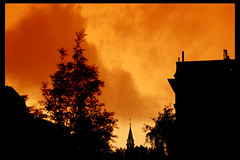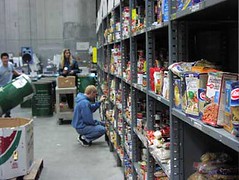 A recent article in the Fresno Bee examined the current wave of apocalyptic themes in pop culture:
A recent article in the Fresno Bee examined the current wave of apocalyptic themes in pop culture:
Prophecies about the end of the world have been debated by scholars, theologians and religious leaders for a long time. But it’s not just them. Pop culture also has a fascination with end times.
The fascination is clear in society today with the release of recent movies. The film “2012,” which opened Friday, depicts the end of the world and is stirring talk about the meaning of a Mayan calendar with the doomsday date. Another movie, “The Road,” which opens Nov. 25, looks at a man and his son’s post-apocalyptic struggle to survive.
One sociological explanation for the trend:
Sociologists say the interest in books, movies and lectures on the subject increases with bad times, such as those scarred by hurricanes, famines, tsunamis, war and economic collapse.
Commentary from a sociologist:
Margaret Gonsoulin, a sociology professor at California State University, Fresno, says the fascination with end times in pop culture reflects a hunger for meaning in the anxiety people feel in bad times.
“They want to know about the future,” she says. “But these sorts of ideas about end times mean different things to different people.”



